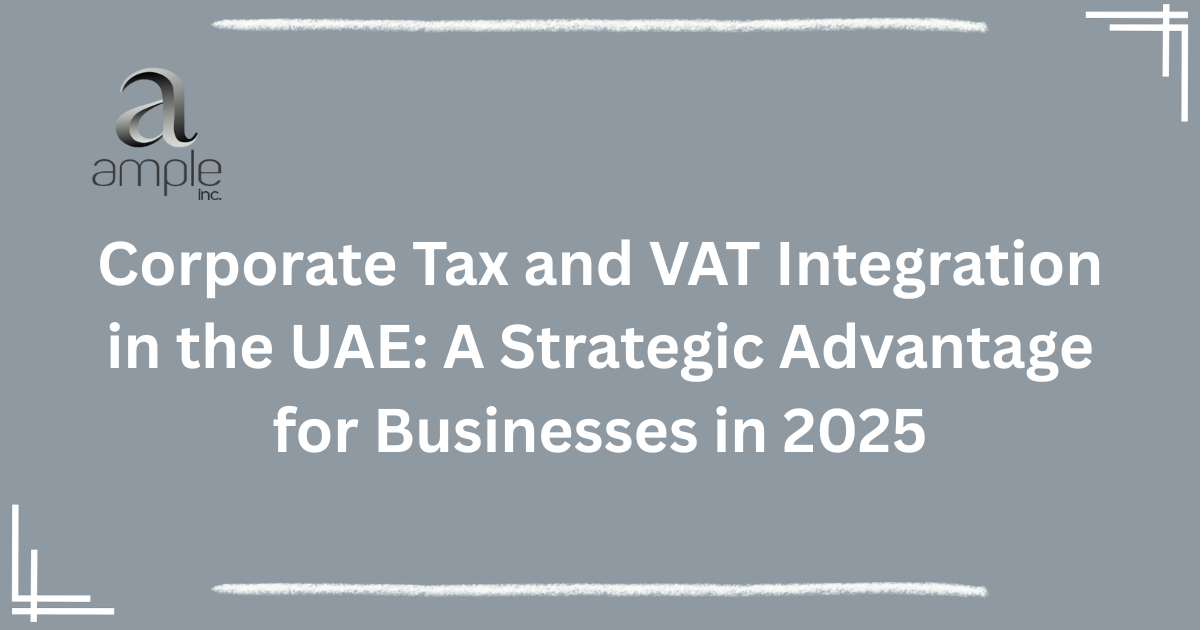In any organization, accounting plays a pivotal role in maintaining financial health, ensuring compliance, and supporting growth. An accounting assistant is integral to the smooth functioning of a company’s financial operations. Their duties and responsibilities include recording transactions, maintaining ledgers, reconciling accounts, preparing invoices, assisting in budget preparation, and generating financial reports. By performing these tasks, they help ensure that financial records are accurate and up-to-date.
An accounting assistant is instrumental in enhancing the efficiency and precision of financial operations within an organization. Their responsibilities encompass a diverse range of tasks, including meticulously recording transactions, maintaining ledgers, reconciling accounts, preparing detailed invoices, supporting budget preparation, and generating comprehensive financial reports. By diligently executing these responsibilities, they strengthen the organization’s financial accuracy and drive operational excellence.
This article will explore the key duties and responsibilities of an accounting assistant, the expertise required for the role, the cost of hiring an accountant, and how Ample Inc. can replace the need for an in-house accountant while offering affordable and reliable accounting solutions.

1. What are the Account Assistant Duties and Responsibilities?
An accounting assistant plays a crucial role in supporting accountants and other financial professionals in managing the day-to-day financial operations of an organization. Their duties often vary depending on the size and needs of the business, but they generally help with a wide range of essential financial tasks. From data entry and bookkeeping to payroll processing, an accounting assistant ensures that financial records are accurate, compliant, and up to date.
Here is a detailed overview of an accounting assistant’s key duties and responsibilities:
1. Bookkeeping and Data Entry
One of the primary duties of an accounting assistant is to record financial transactions, including purchases, sales, receipts, and payments. They maintain accurate and organized financial records, ensuring that transactions are properly categorized in accounting software or ledgers. This may involve the following tasks:
- Data Entry: Accurately inputting financial transactions into accounting software such as QuickBooks or Xero.
- Bank Reconciliation: Reconciling bank statements and ensuring that all transactions match company records.
- Updating Financial Records: Keeping financial records up to date regularly to ensure they reflect the latest transactions.
Having accurate and organized records is essential for maintaining transparency, meeting compliance requirements, and preparing for audits.
2. Managing Accounts Payable and Receivable
An accounting assistant is also responsible for managing both accounts payable (AP) and accounts receivable (AR), ensuring that the company’s cash flow is efficiently managed. They typically perform the following tasks:
- Accounts Payable: Tracking outstanding invoices, ensuring timely payments to vendors and suppliers, and maintaining records of all paid and unpaid bills.
- Accounts Receivable: Generating invoices for clients, tracking overdue payments, and following up to ensure timely collections.
By keeping accounts payable and receivable in check, accounting assistants help the business maintain healthy relationships with suppliers and clients while ensuring smooth cash flow operations.
3. Preparing Financial Reports
Accounting assistants also help with preparing essential financial documents, which are critical for decision-making and business planning. Some of the key financial reports they assist in preparing include:
- Income Statements: Providing a snapshot of the company’s profitability over a specified period.
- Balance Sheets: Displaying the company’s assets, liabilities, and equity at a specific point in time.
- Cash Flow Statements: Detailing the movement of cash in and out of the business, which is vital for assessing liquidity.
These reports support accountants in analyzing business performance, managing financial risks, and making informed decisions. They are also essential for stakeholders like investors, creditors, and tax authorities.
4. Assisting with Payroll
In many organizations, accounting assistants help manage payroll processes, which involve calculating employee wages, taxes, benefits, and other deductions. The key responsibilities include:
- Calculating Employee Salaries: Ensuring employees are paid accurately based on their hours worked or salary agreements.
- Handling Deductions: Managing tax deductions, insurance contributions, and retirement fund contributions.
- Ensuring Timely Payments: Ensuring that employees are paid on time and in compliance with UAE labor laws.
Accounting assistants also maintain payroll records and assist in generating reports related to employee compensation.
5. Handling Tax Filings
While accountants are typically responsible for preparing taxes, accounting assistants play a vital role in ensuring tax compliance by gathering necessary documents and organizing financial data. Their tasks often include:
- Organizing Tax Documents: Ensuring all relevant documents, such as receipts and invoices, are collected and organized for tax filing.
- Tax Filing Support: Assisting accountants in filing VAT returns, corporate taxes, and other business taxes on time to avoid penalties.
- Tax Documentation: Maintaining accurate records of tax payments and filings for auditing purposes.
Accurate tax records are essential for minimizing the risk of tax audits and penalties.
6. Reconciling Accounts
Another important duty of an accounting assistant is reconciling discrepancies between bank statements and company records. This task ensures that all financial activities are properly recorded and that the company’s financial data is accurate. Responsibilities include:
- Reconciliation of Bank Statements: Comparing company records with bank statements to ensure all transactions are recorded correctly.
- Identifying Discrepancies: Detecting and addressing any discrepancies in financial records, such as missing transactions or incorrect amounts.
Reconciliation is a crucial task that prevents errors and helps businesses avoid financial discrepancies that could lead to misreporting.
7. Providing Administrative Support
Accounting assistants often provide general administrative support to accountants and other financial professionals. This can include a range of tasks such as:
- Organizing Financial Records: Keeping physical and digital records organized and easily accessible for the team.
- Scheduling Meetings: Assisting with scheduling meetings, coordinating appointments, and handling communication with stakeholders.
- Responding to Queries: Addressing any questions or concerns regarding financial transactions and records from internal or external parties.
Effective administrative support helps ensure that the accounting department operates smoothly and efficiently.
Accounting assistants play an essential role in supporting the overall financial operations of a business. They handle a wide range of tasks, from bookkeeping and payroll processing to tax filing and financial reporting, helping ensure that all financial records are accurate, up to date, and compliant with regulations.
By performing these duties efficiently, accounting assistants free up accountants to focus on more complex financial analysis and strategic decision-making. With accurate records, timely reports, and proper financial management, businesses can make informed decisions and maintain a strong financial foundation.
At Ample Inc., we understand the importance of having dedicated financial support. If you are looking for affordable and reliable accounting services, we offer comprehensive solutions to meet your business needs. Our services can help streamline your accounting processes while saving you time and money.
For more information about how Ample can help optimize your financial operations, visit our website or contact us directly. We provide personalized, expert accounting support that empowers businesses to thrive in a competitive market.
2. What Expertise Is Required to Be an Accounting Assistant?
To thrive in the role of an accounting assistant, certain skills and expertise are essential. These competencies ensure that accounting assistants can effectively contribute to the financial operations of a business, maintain accurate records, and support accountants in their tasks.
Here’s a closer look at the key skills required for Accounting Assistant:
1. Knowledge of Accounting Principles
A strong foundation in accounting principles is crucial for an accounting assistant. They must understand fundamental concepts such as:
- The Accounting Equation: The balance between assets, liabilities, and equity (Assets = Liabilities + Equity).
- Types of Accounts: Understanding different account categories such as assets, liabilities, equity, revenue, and expenses is key for accurate financial reporting.
- Double-Entry Bookkeeping: This principle ensures that every transaction affects at least two accounts, helping maintain the accuracy of records.
Without a solid grasp of accounting principles, an assistant could struggle to maintain accurate financial records, which could have far-reaching consequences for the business.
2. Attention to Detail
In accounting, even the smallest error can lead to significant discrepancies and financial issues. Accounting assistants must be meticulous in their work to ensure that:
- Financial transactions are recorded accurately.
- Mistakes are spotted and corrected promptly.
- Discrepancies are identified early and resolved before they escalate.
This attention to detail ensures the integrity of financial data and helps the business remain compliant with tax and regulatory requirements.
3. Proficiency with Accounting Software
In today’s digital age, familiarity with accounting software is non-negotiable for an accounting assistant. Most businesses rely on accounting software such as:
- QuickBooks: Popular for small businesses, QuickBooks offers easy-to-use bookkeeping tools.
- Xero: Cloud-based accounting software known for its ease of use and real-time collaboration.
- ERP Systems: Larger organizations may use Enterprise Resource Planning systems (e.g., SAP, Oracle) to manage financial data and processes.
Additionally, basic computer skills, particularly proficiency in Microsoft Excel, are important for tasks such as generating reports, performing financial calculations, and managing large volumes of data.
Proficiency with these tools enhances an accounting assistant’s ability to streamline accounting tasks, reduce errors, and improve overall efficiency.
4. Organizational Skills
Accounting assistants are responsible for managing numerous financial documents and tasks. Strong organizational skills help them keep track of various projects, ensure financial records are kept orderly, and meet deadlines. These skills include:
- Filing Financial Documents: Ensuring both physical and digital records are properly filed and easily accessible.
- Prioritizing Tasks: Managing multiple duties like data entry, accounts payable, and financial reporting in an efficient manner.
- Time Management: Meeting deadlines for tasks such as payroll processing, tax filings, and report generation.
Good organization is essential for maintaining smooth operations and preventing financial errors.
5. Strong Communication Skills
Accounting assistants often interact with various departments, clients, vendors, and other stakeholders. Effective communication ensures that:
- Financial queries are addressed promptly and accurately.
- Information is conveyed clearly, particularly when explaining financial data or discrepancies.
- Coordination between departments is efficient, ensuring that accounting processes run smoothly.
Clear communication helps prevent misunderstandings, improves team collaboration, and ensures that financial tasks are completed on time.
6. Basic Understanding of Taxation
While complex tax filings and strategies are usually handled by accountants, accounting assistants should have a basic understanding of tax principles and regulations. This includes:
- VAT (Value Added Tax): Knowing how VAT works and ensuring that records are accurate for VAT filing.
- Corporate Tax Compliance: Understanding the essentials of corporate taxes, such as how to calculate tax liabilities and ensuring that the company meets tax deadlines.
This knowledge is critical for ensuring the company remains tax-compliant and avoids penalties for errors or missed deadlines.
7. Confidentiality
Since accounting assistants handle sensitive financial information, confidentiality is one of the most important skills in this role. They must adhere to strict ethical standards to protect:
- Client Information: Safeguarding financial data related to clients or vendors.
- Company Financial Data: Ensuring internal financial records are kept confidential to prevent misuse.
A breach of confidentiality can have serious legal and reputational consequences for both the assistant and the company.
8. Analytical Skills
Although accounting assistants are not typically tasked with advanced financial analysis, having basic analytical skills can be highly beneficial. These skills allow assistants to:
- Identify Trends: Recognize patterns in financial data, such as increased expenses or declining revenue.
- Spot Discrepancies: Detect errors in the books or misstatements in accounts.
- Suggest Improvements: Offer insights into process optimization or cost-saving opportunities based on financial data.
Basic analytical skills help accounting assistants contribute more effectively to the financial health of the business.
An accounting assistant plays a pivotal role in maintaining the financial integrity and operational efficiency of an organization. To excel in this role, they need to possess a combination of technical knowledge, attention to detail, proficiency with software, and organizational abilities. With these skills, an accounting assistant can significantly support accountants and help a company maintain accurate financial records, ensure tax compliance, and make informed decisions.
If your business is looking for cost-effective and efficient accounting services, Ample Inc. offers a range of solutions that can help optimize your accounting operations. Our team provides expert accounting support at a fraction of the cost of hiring a full-time accountant. To learn more, get in touch with us today, and let us help streamline your financial processes.
3. Cost of Hiring an Accountant
The cost of hiring an accountant can vary based on several factors, including their level of expertise, the complexity of the work, and whether you hire a full-time employee or outsource the role.
a. In-House Accountants
Hiring an in-house accountant can be expensive. On average, a junior accountant in the UAE may cost around AED 5,000 to AED 8,000 per month, while more experienced accountants or senior professionals could command salaries between AED 10,000 and AED 20,000 per month. Additionally, companies must consider benefits, taxes, and other overhead costs associated with employing full-time staff.
b. Outsourcing Accounting Services
Outsourcing accounting functions to a firm or service provider can often be more cost-effective. Many firms offer accounting services at a lower cost than hiring full-time employees, especially for small and medium-sized businesses.
4. How Ample Replaces an Accountant
Ample Inc. offers businesses an effective and efficient alternative to hiring an in-house accountant. By outsourcing your accounting tasks to us, you can access high-quality financial services without the need for a full-time, in-house accounting staff. Our approach ensures that your accounting needs are met while saving you the overhead costs associated with hiring a dedicated accountant. Here’s how Ample can replace an accountant for your business:
a. Comprehensive Accounting Services
At Ample, we provide a full spectrum of accounting services designed to meet the diverse needs of businesses. Our services include:
- Bookkeeping: We handle the routine but essential task of recording all your financial transactions, ensuring that your records are accurate and up-to-date.
- Financial Reporting: We generate detailed financial reports, including balance sheets, income statements, and cash flow statements, that provide key insights into your business’s financial health.
- Tax Filing: We manage tax filings, ensuring compliance with local laws, including VAT returns, corporate taxes, and other applicable taxes.
- Payroll Management: Our team ensures that employees are paid accurately and on time, in compliance with UAE labor laws and company policies.
- Audit Services: Our auditing services provide you with assurance that your financial statements are accurate and aligned with regulatory standards.
With our comprehensive services, you can rest assured that your financial processes are managed efficiently, allowing you to focus on growing your business while we take care of the numbers.
b. Affordable Packages
Hiring an in-house accountant can be costly, especially for small businesses and startups. At Ample, we offer affordable and flexible accounting packages tailored to your specific needs. Our pricing structures ensure that businesses of all sizes can access expert accounting services at a fraction of the cost of hiring a full-time accountant.
Our packages are designed to be scalable, so whether you’re just starting out or are an established business looking for more advanced services, we provide options that fit your budget without compromising on quality. From basic bookkeeping to comprehensive financial planning, we have a solution that meets your requirements at a competitive price. Learn more about our pricing packages here.
c. Access to Expertise
When you partner with Ample, you gain access to a team of skilled accountants and financial professionals with years of experience. Our team is well-versed in:
- UAE tax laws and regulations: We stay up-to-date with the latest changes in tax laws to ensure your business remains compliant and avoids any penalties.
- Accounting principles and best practices: Our team is proficient in both local and international accounting standards, ensuring that your financial statements are accurate and reliable.
- Financial strategy and advisory: We offer insights into cost management, profitability, and investment strategies, helping you make informed business decisions that drive growth.
By outsourcing to Ample, you tap into a network of experts who provide the support and guidance your business needs, ensuring financial health and compliance without the cost of hiring a full-time expert. Contact us to learn more.
d. Advanced Technology
At Ample, we leverage the latest accounting software and technologies to streamline financial processes and improve accuracy. We use tools like:
- Cloud-based accounting software (e.g., QuickBooks, Xero): These systems allow real-time tracking of your financial data, providing you with instant access to reports and updates.
- Automation: We automate repetitive tasks such as invoicing, payments, and reconciliation, reducing the risk of human error and ensuring faster processing.
- Advanced reporting tools: Our technology enables us to generate insightful reports that help you track your financial performance, identify trends, and make strategic decisions.
By adopting these advanced technologies, we ensure that your accounting processes are efficient, secure, and always up-to-date, allowing you to focus on the growth of your business.
e. Scalable Solutions
As your business evolves, your accounting needs may become more complex. Ample offers scalable solutions that grow with your business. Whether you need:
- Expanded financial reporting: As your business grows, we can provide more detailed and tailored financial reports to support strategic planning.
- More complex tax filings: Our team is equipped to handle more sophisticated tax issues, ensuring that your business remains compliant as it expands.
- Increased payroll management: We can handle payroll for growing teams, ensuring accuracy, compliance, and timely processing.
Our ability to scale our services allows us to continue meeting your needs at every stage of growth, ensuring that your financial operations remain smooth and efficient.
Outsourcing your accounting functions to Ample Inc. offers a cost-effective, efficient, and scalable solution for businesses of all sizes. With our comprehensive range of services, access to expertise, advanced technology, and affordable pricing, we can replace the need for a full-time accountant while providing you with the same high-quality service.
Ample’s flexible packages ensure that you only pay for the services you need, and our team is dedicated to helping you manage your financial operations effectively. Let us help you streamline your accounting processes and focus on growing your business. Contact us today to find out how we can support your accounting needs at a fraction of the cost of hiring an in-house accountant.
Ample Can Help You with Accounts at Less Cost
Outsourcing your accounting needs to Ample Inc. offers businesses significant cost savings compared to hiring a full-time accountant. Here’s how we help businesses reduce costs and maintain financial efficiency:
1. No Overhead Costs
When you hire a full-time employee, you incur several overhead costs such as salaries, office space, utilities, insurance, employee benefits, and other related expenses. By outsourcing your accounting functions to Ample Inc., you eliminate these extra costs. You only pay for the services you need, and you don’t need to worry about employee-related overhead.
2. Flexible Packages
At Ample Inc., we understand that every business is unique, and so are its accounting needs. That’s why we offer flexible, customizable accounting packages. You can choose the level of service that suits your business without paying for unnecessary services. Whether you require basic bookkeeping or advanced financial advisory, we provide tailored solutions that ensure cost-efficiency.
3. Expert Service at Lower Rates
Hiring an in-house accountant or an entire accounting team can be expensive, especially for small businesses and startups. With Ample, you get access to a team of experienced accountants and financial professionals at a fraction of the cost. Our team is equipped to handle all your accounting and financial needs, from bookkeeping to tax filing, payroll management, and financial reporting, all at a much lower cost than hiring full-time staff.
4. Reduced Risk of Errors
One of the most expensive mistakes in accounting is errors that lead to fines, penalties or missed financial opportunities. Ample Inc. employs experienced accountants who ensure your financial records are accurate and compliant with local regulations. By outsourcing to us, you minimize the risk of costly errors that can damage your business’s financial standing and reputation.
In summary, outsourcing your accounting services to Ample not only offers expert-level support but also allows you to save on overhead costs, avoid the risks of hiring unqualified staff, and streamline your financial operations at a fraction of the cost of hiring an in-house team. Let us help you reduce your accounting costs while maximizing financial accuracy and efficiency.
For more information about how Ample can help save on your accounting costs, feel free to contact us.
6. Conclusion
Accounting assistants play a vital role in maintaining the financial health of a business by managing day-to-day accounting functions. However, hiring an in-house accountant can be costly for many businesses. At Ample Inc., we offer a more affordable and flexible solution. Our comprehensive accounting services provide businesses with high-quality, expert support without the overhead costs associated with hiring a full-time accountant.
By choosing Ample as your accounting partner, you gain access to a team of professionals who follow the best accounting practices and use advanced technology to manage your finances. Whether you need bookkeeping, payroll management, tax filing, or financial advisory services, Ample ensures that your business operates efficiently and stays compliant—all at a lower cost.
Contact Ample today to learn how we can help streamline your accounting processes and support the growth of your business with less financial investment.



